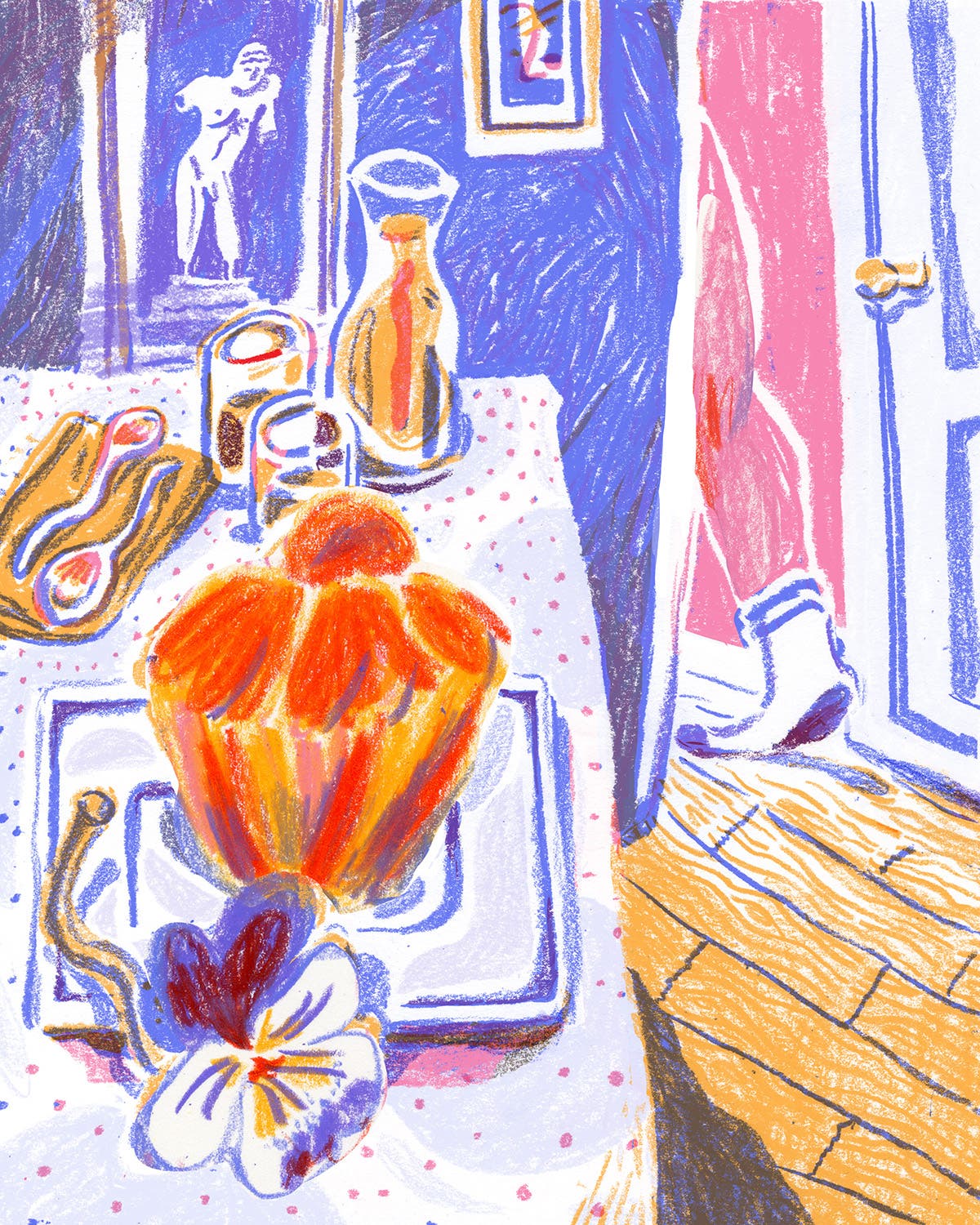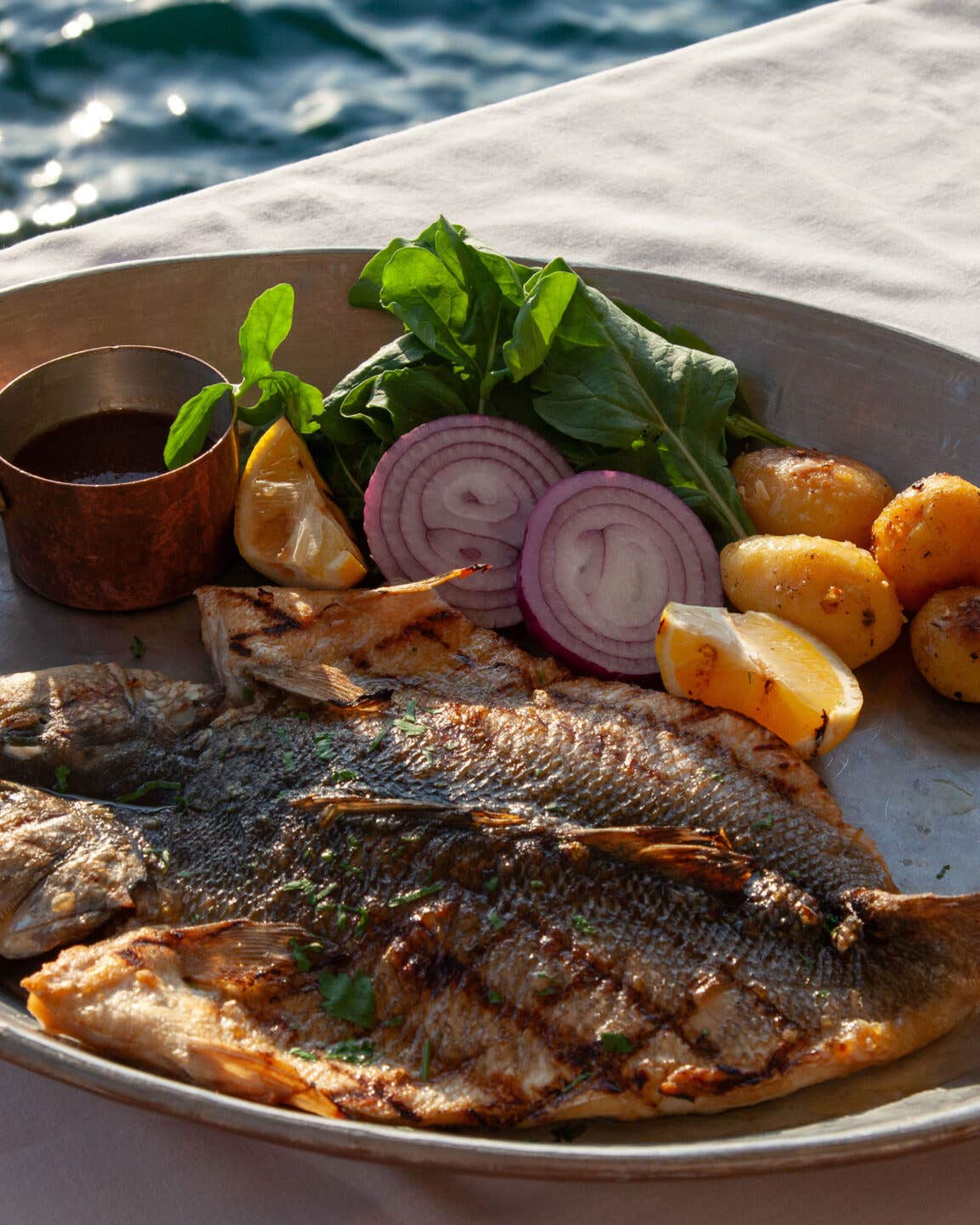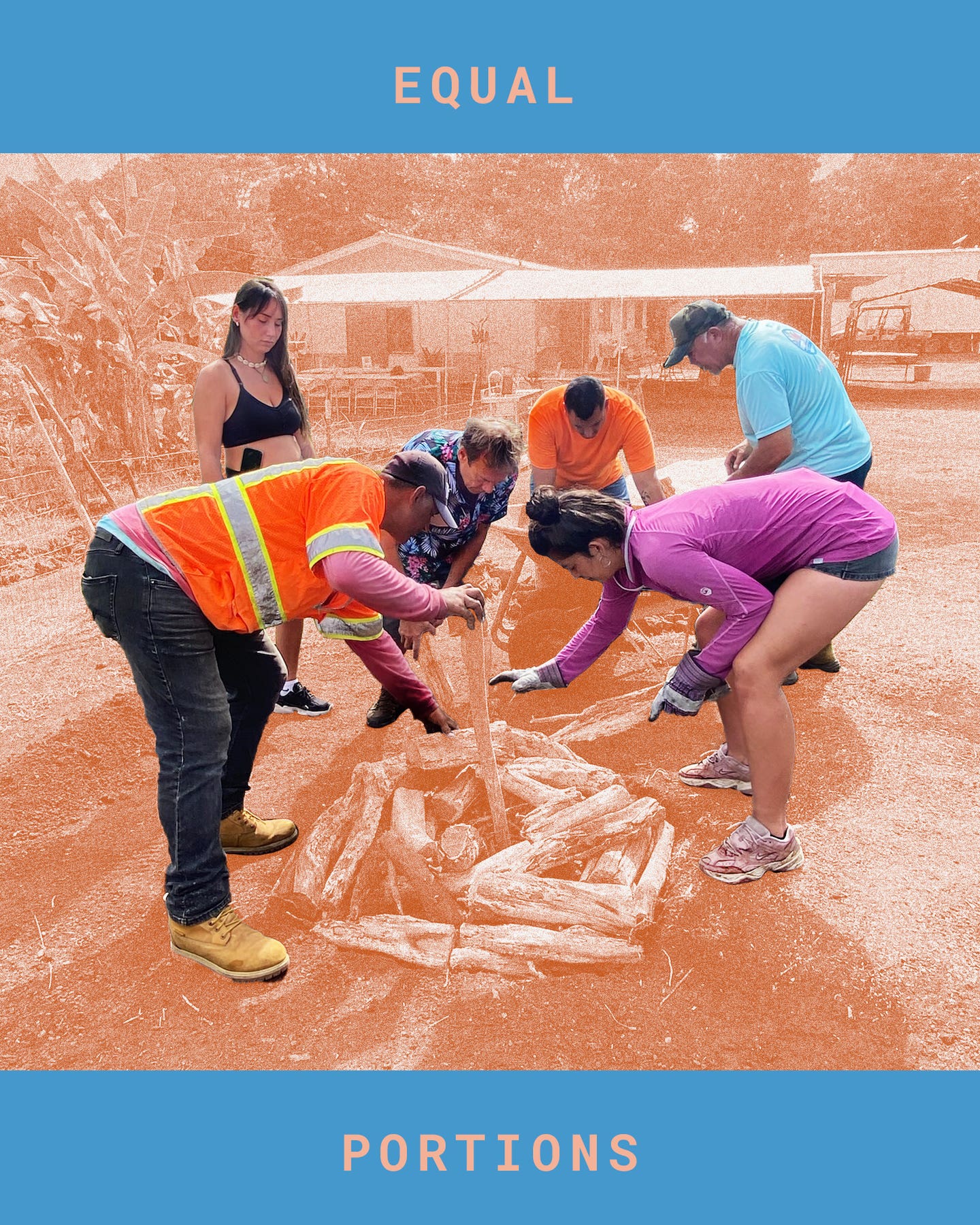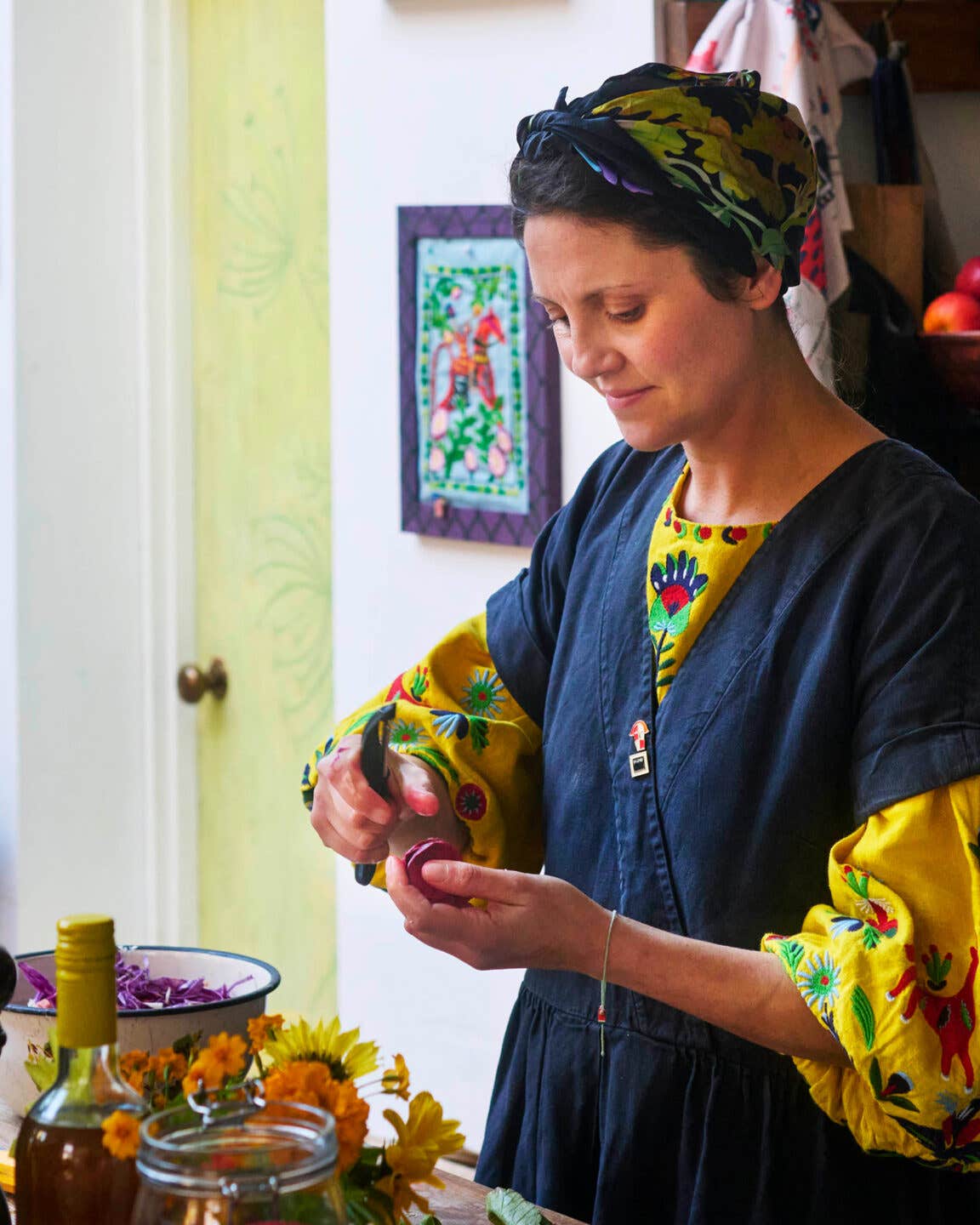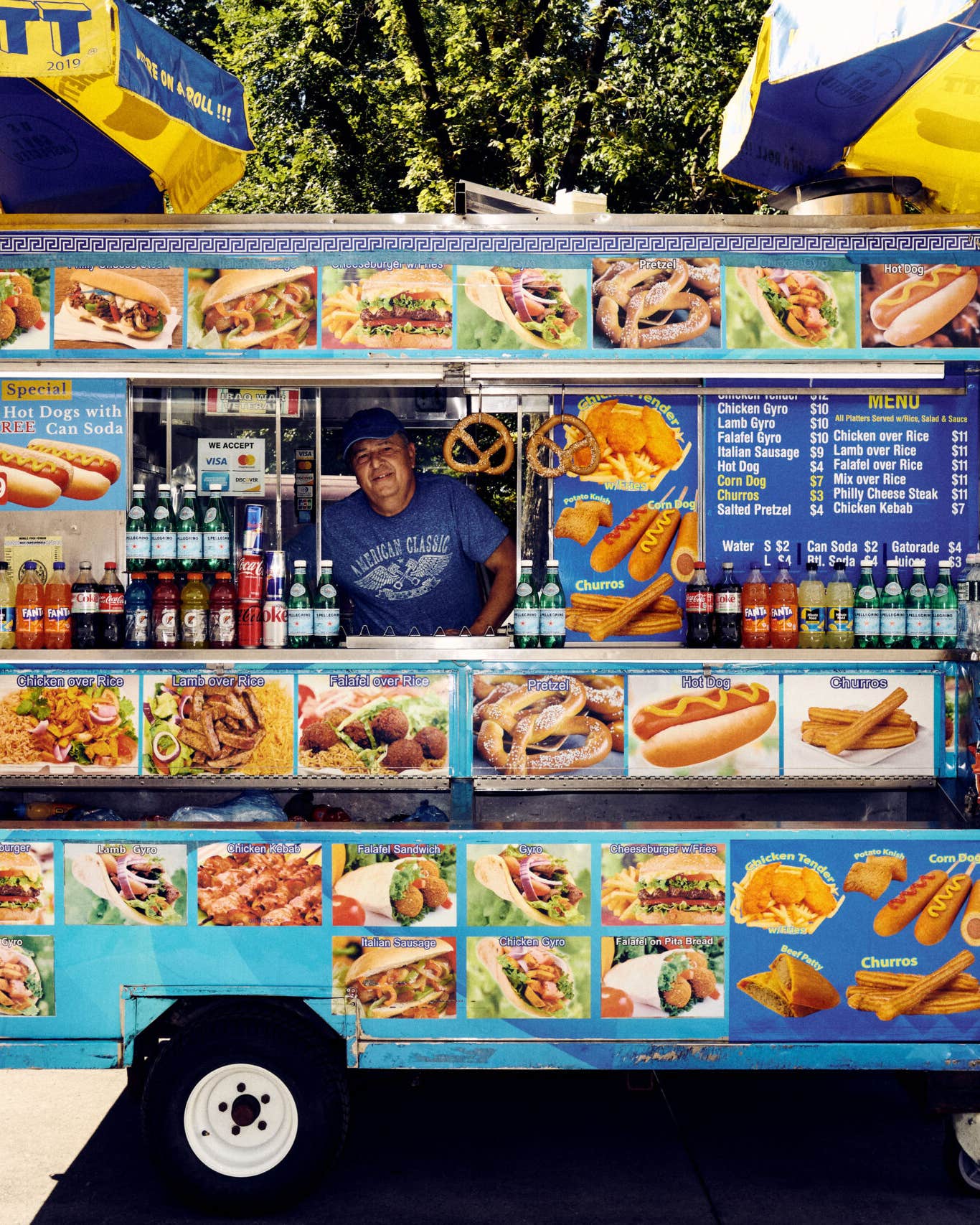
Remembering Teta Julia and Her Recipe for Christmas Cake
This excerpt from “Bethlehem: A Celebration of Palestinian Food” is a window into Christian culinary traditions in the Holy Land.
While Christmas is an annual highlight for many people around the world, naturally in Bethlehem, it is something extra special. It can feel like the little town is always building up to this holiday. But these days, someone important is missing: my grandmother. Teta Julia truly loved Christmas, an occasion for so many things that she cared deeply about: flavorsome food, generous hospitality, charitable giving, the preservation of traditions, and, of course, big family get-togethers.
My grandmother Julia was the principal inspiration for my passion for cooking as a boy. I spent a lot of time at her house, absorbing her busy daily routine. There would always be enticing smells and a frenzy of activity in the kitchen as meals were prepared, often for guests. Meanwhile, farmers would call directly at the front door to offer their seasonal specialities: ripe prickly pears, watermelons from Jenin, fat courgettes (zucchini), and finger-length aubergines (eggplant) from Battir.

The days started early, and often by 10 in the morning, my grandmother would be patiently waiting on the terrace for a friend to attend an event at the Arab Women Union, where she was one of the founders. To my delight, women coming to see her from neighbouring villages would often bear tasty gifts: sweet dibs (grape molasses) from Khirbet Beit Zakariyyah or honey from Ubeidiya, and salty laban jameed (salted and dried yogurt) from local Bedouin communities.
As Christmas approached, my grandparents’ home would bustle excitedly with energy. My grandmother had been raised in a home where Christmas traditions were hugely important. They had been ingrained in her by her father, my great-grandfather, Mattia Kattan, whom she described compellingly in her book, Lest We Forget. Sadly, he died before I was born, but I appreciated that he was the well-traveled, multilingual son of a former mayor of Bethlehem, a merchant with shops in Amman, Haifa, and Jerusalem, who was dedicated to his large family. He was the loving father of eight girls—an accomplished lineup which included both my grandmothers—and one boy.
My grandmother took huge pride in our city and always strove to preserve its stories and memories for locals as well as its many international visitors. This can clearly be seen in the Beituna al-Talhami Museum, which was established by the Arab Women Union under her administration and through her record of community work. Long before December 24, Christmas Eve for our Catholic family, she and her friends would be knitting sweaters to be sent as Christmas gifts to Palestinian political prisoners in Israeli jails. There were always charitable fundraising activities and Christmas parties for the less well-off in our community to organize, too.
My grandmother instilled in all her grandchildren the values of solidarity and philanthropy. My siblings, cousins, and I were always encouraged to think of those less fortunate than ourselves, particularly in the run-up to Christmas. We would make small donations from our pocket money to local charities, including the orphanages, so that the children cared for there could have a Christmas gift and a festive meal.

Our family’s Christmas preparations have always begun in earnest on December 1, the start of Advent, which also happens to be my birthday. From this date on, Christmas trees and decorations are on display, Christmas carols can be legitimately played, and stacks of Julia’s rich Christmas cake start building up. Funnily enough, the recipe for the cake was simply based on an old Betty Crocker one, which Teta adapted to include locally sourced Palestinian ingredients, adding extra cinnamon and nutmeg, moist dates, fleshy dried apricots, and figs. Throughout December, Teta’s home would be filled with this Christmassy smell. Her oven was on nonstop—and the kitchen was converted into a mini production line for her cakes.
I have no idea how many Christmas cakes Teta would make each year, but it was a lot. Most were devoured or handed out to loved ones just before Christmas. My main task as an enthusiastic young kitchen assistant was to chop the dried fruit and then coat the pieces in flour before adding them to the cake mix so they did not just slump down to the bottom of the baking tin. Sometimes I would also be trusted to lay out all the long rectangular cake pans and line them with parchment paper while my grandmother and her regular kitchen helper got the cake mix ready. Finally, as the cakes slowly baked, we would sit expectantly in the kitchen, keeping an eye on them. When my grandfather came home from work, the irresistible aroma would always put a smile on his face.
Nowadays, the Israeli state’s construction of the segregation wall has marred one of the main highlights of Christmas celebrations—the procession of church officials from Jerusalem’s Old City to the Nativity Church in Bethlehem. But when I was growing up, large crowds of joyful Christians, mostly from Bethlehem and the surrounding areas, would gather along the route to welcome the procession, with the first clusters at Mar Elias Monastery, on a hill at the edge of the city, and at Rachel’s Tomb, where many notables would wait. As my grandparents’ house was well located along the route inside Bethlehem, we would congregate there in the front garden on December 24 to greet the Roman Catholic patriarch who heads the convoy and watch the scouts and horses who accompanied him. My grandparents—who had close relations with the church—were always ready to salute the patriarch of the day. After he had passed, we went inside for a grand lunch.
In the weeks leading up to this event, the conversation would revolve around whom to invite to the lunch. My grandmother, the generous hostess, hated to leave anyone out and always secretly invited extra guests. She would also welcome those who had not been invited as we packed inside. By now, the exquisitely decorated Christmas tree would be ready with gifts wrapped for everyone so that for us children, this was always an exhilarating time. Despite extensive conversations among the family about what our lunch should involve, the menu was usually more or less the same.
The appetizers were invariably sfiha (meat-filled flatbreads), sambousek (crispy meat pies), kibbeh (spiced meat and bulgur wheat), and a local salad.
Then my grandmother would make what she called “Oriental rice,” on which she lavished minced meat (ground meat), festive grilled chestnuts, almonds, and pine nuts. This would accompany roasted turkey and a roasted lamb shank as well as her famous glazed carrots. Some years, she would opt for a whole roasted lamb stuffed with rice and meat. It was always an epic meal. On these occasions, many of my relatives would shy away from the head of the lamb, but Teta would cut this and quietly serve it to those of us privileged to know the value of the delicacy and sometimes to others who had no idea what it was. I would contentedly tuck into the brain meat, bone marrow, and any other parts of the lamb, leaving others to enjoy the leaner but, in my opinion, less tasty meat.

I am eternally grateful that I had such exceptional grandparents and that I was able to spend so much time with Teta Julia. She taught me about every Palestinian spice and herb, and most importantly, about Palestinian hospitality, the love of Bethlehem, and the importance of resilience.
Teta’s Christmas lunches, her pièces de résistances, would always end with her Christmas cake. We were only allowed to taste it for the first time on Christmas Eve. There was a ritual in which she took a cake out of the refrigerator, where it would have been stored for three weeks, for us to slice it together. After so much anticipation, that first taste was always a memorable moment.
After Teta Julia passed away, the entire family was in denial, but Christmastime was the hardest, the time when her absence was most painful. It took me several years to realize that I could bake her Christmas cake and share it with the family in her memory, as a tribute to her.
A glorious Christmas Eve lunch would taper off rather than end. Then we would sit around, our stomachs full, sipping Arabic coffee, and our attention would begin to shift to midnight mass. While much of the family would be heading to the Nativity Church, the scramble for the sought-after tickets, which had often begun in the autumn, was off-putting for my grandmother. Instead, along with my grandfather and parents, she preferred to head to the chapel at Bethlehem University, another eminent local institution which she had helped to found.
Recipe

Excerpted with permission from Bethlehem: A Celebration of Palestinian Food by Fadi Kattan. Published by Hardie Grant Publishing, May 2024.
Keep Reading
Continue to Next Story




